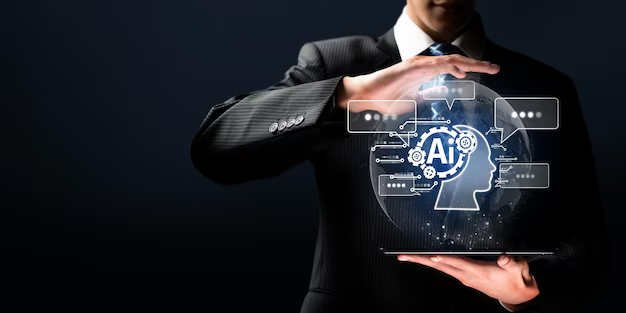Artificial Intelligence (AI) has revolutionized industries, and digital marketing is no exception. As we move into 2025, AI is not just an added advantage; it’s becoming the backbone of successful marketing strategies. From automating repetitive tasks to delivering highly personalized user experiences, AI is shaping how businesses connect with their audiences. In this blog, we will explore the latest AI trends in digital marketing, practical applications, and actionable tips to help you stay ahead of the curve in this competitive landscape.
The Current State of AI in Digital Marketing
AI has evolved significantly over the years. In 2025, it is no longer limited to chatbots and basic data analysis. It is now deeply integrated into all aspects of digital marketing, including:
- Search Engine Optimization (SEO): AI algorithms predict search trends and optimize content accordingly.
- Content Creation: AI tools generate creative and engaging content tailored to specific audiences.
- Advertising: AI-powered platforms analyze user behavior to deliver highly targeted ads.
- Customer Support: Advanced chatbots provide 24/7 support with near-human accuracy.
These advancements are making marketing campaigns smarter, faster, and more effective.
Top AI Trends in Digital Marketing for 2025
- Hyper-Personalization at Scale
AI is taking personalization to new heights by analyzing vast amounts of data to understand user preferences. This enables businesses to deliver tailored experiences, from product recommendations to email marketing campaigns. - Voice Search Optimization
With the increasing use of voice assistants like Alexa, Siri, and Google Assistant, optimizing for voice search is a must. AI tools help marketers create content that aligns with conversational queries. - AI-Generated Content
Tools like ChatGPT have revolutionized content creation. Marketers can now produce blogs, ad copy, and social media posts in minutes without compromising quality. - Predictive Analytics
AI analyzes past behaviors and predicts future trends, helping marketers make data-driven decisions. For example, predictive analytics can forecast which campaigns are likely to succeed. - AI in Paid Advertising
AI optimizes ad placements, budgets, and targeting, ensuring maximum ROI. Platforms like Google Ads and Meta Ads heavily rely on AI to refine their algorithms. - Conversational AI
Chatbots and virtual assistants are becoming more sophisticated. They now provide personalized recommendations, answer complex queries, and even upsell products.

Practical Applications of AI in Digital Marketing
- SEO and Content Strategy
AI-powered tools like SEMrush, Ahrefs, and Clearscope analyze search trends and competition to suggest keywords and topics that resonate with your audience. AI can also recommend updates to old content, ensuring it remains relevant and ranks higher on search engines. - Social Media Marketing
AI analyzes user interactions to determine the best times to post, the type of content that garners the most engagement, and the demographics of your audience. Additionally, AI-driven tools like Hootsuite and Buffer simplify scheduling and reporting. - Email Marketing
AI tools segment your audience based on behavior and preferences, enabling you to send personalized emails. Dynamic subject lines, predictive send times, and tailored offers improve open and conversion rates. - Programmatic Advertising
AI automates the buying and selling of ad space, ensuring your ads reach the right audience at the right time. This reduces costs and increases efficiency. - Customer Journey Mapping
AI tracks and analyzes every interaction a customer has with your brand, from their first website visit to the final purchase. This data helps marketers create seamless, personalized customer journeys.
Benefits of Embracing AI in Digital Marketing
- Efficiency and Time-Saving
AI automates repetitive tasks such as data analysis, ad placements, and report generation, allowing marketers to focus on strategy and creativity. - Cost-Effectiveness
By optimizing campaigns and targeting the right audience, AI reduces wasted ad spend and maximizes ROI. - Improved User Experience
Personalized experiences make users feel valued, increasing engagement and loyalty. - Better Decision-Making
AI provides actionable insights by analyzing complex datasets, helping marketers make informed decisions. - Scalability
AI enables businesses to handle large-scale campaigns with minimal effort, making it ideal for growing organizations.
Challenges of Implementing AI in Digital Marketing
While AI offers numerous benefits, it’s not without challenges:
- High Initial Investment
Implementing AI tools and training teams can be expensive for small businesses. - Data Privacy Concerns
With stricter data privacy laws, marketers must ensure they use AI responsibly and comply with regulations like GDPR and CCPA. - Dependence on Quality Data
AI’s effectiveness depends on the quality of data it analyzes. Inaccurate or incomplete data can lead to poor results. - Lack of Human Touch
Over-reliance on AI may result in losing the emotional connection that human marketers bring to campaigns.

Tips to Stay Ahead in 2025
- Invest in Training and Tools
Educate your team about the latest AI trends and invest in tools that align with your business goals. - Focus on Data Quality
Implement robust data collection and management practices to ensure your AI systems work effectively. - Stay Compliant
Keep up with evolving data privacy regulations to avoid legal issues. - Balance Automation with Human Creativity
While AI can handle repetitive tasks, human input is crucial for creative and strategic decision-making. - Experiment and Adapt
AI is constantly evolving. Experiment with new tools and strategies, and be ready to adapt to changes.
Case Studies: Successful AI-Driven Campaigns
- Netflix
Netflix uses AI to analyze viewing habits and recommend content tailored to individual preferences. This has significantly increased user engagement and retention. - Coca-Cola
Coca-Cola uses AI to monitor social media conversations, allowing them to respond to trends in real time. - Amazon
Amazon’s recommendation engine, powered by AI, accounts for a significant portion of its sales by offering personalized product suggestions.
Conclusion
As digital marketing continues to evolve, AI is proving to be an indispensable tool for businesses looking to stay competitive. In 2025, embracing AI-driven strategies will be the key to delivering personalized experiences, optimizing campaigns, and achieving measurable results.
Whether you’re a small business or a large enterprise, integrating AI into your marketing efforts can help you stay ahead of the curve. Start by understanding the trends, investing in the right tools, and balancing automation with human creativity. The future of digital marketing is here—are you ready to embrace it?
Call to Action:
Looking to leverage AI for your digital marketing campaigns? Contact us at UpRango for cutting-edge solutions that deliver results!



